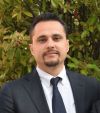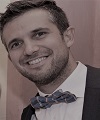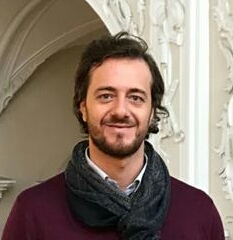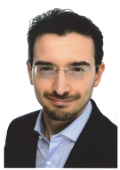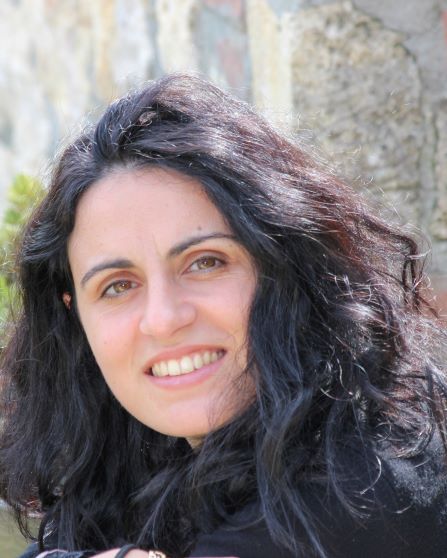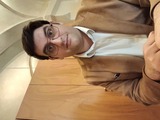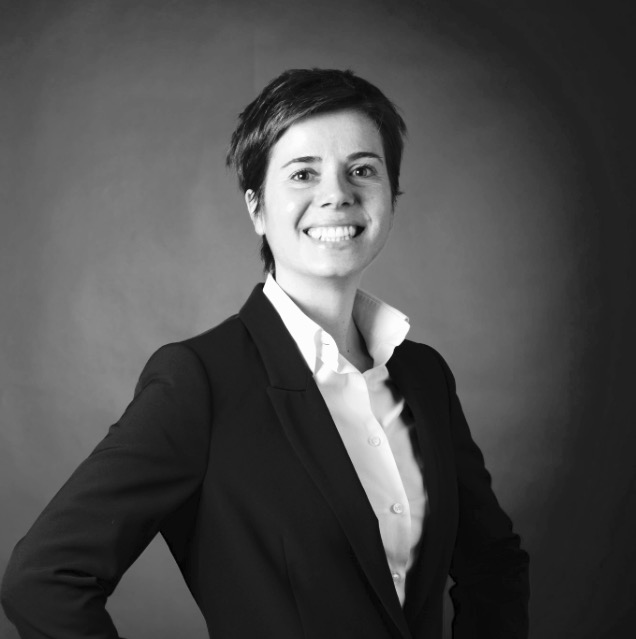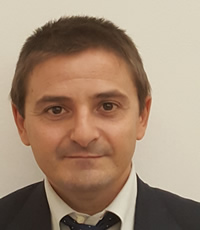Studying at the University of Verona
Here you can find information on the organisational aspects of the Programme, lecture timetables, learning activities and useful contact details for your time at the University, from enrolment to graduation.
Academic calendar
The academic calendar shows the deadlines and scheduled events that are relevant to students, teaching and technical-administrative staff of the University. Public holidays and University closures are also indicated. The academic year normally begins on 1 October each year and ends on 30 September of the following year.
Course calendar
The Academic Calendar sets out the degree programme lecture and exam timetables, as well as the relevant university closure dates..
| Period | From | To |
|---|---|---|
| Periodo generico | Oct 1, 2023 | May 31, 2024 |
| Primo semestre (lauree magistrali) | Oct 2, 2023 | Dec 22, 2023 |
| Secondo semestre (lauree magistrali) | Feb 26, 2024 | May 24, 2024 |
| Session | From | To |
|---|---|---|
| Sessione invernale (lauree magistrali) | Jan 8, 2024 | Feb 23, 2024 |
| Sessione estiva (lauree magistrali) | May 27, 2024 | Jul 12, 2024 |
| Sessione autunnale (lauree magistrali) | Aug 26, 2024 | Sep 20, 2024 |
| Session | From | To |
|---|---|---|
| Sessione autunnale a.a. 2022/2023 | Dec 5, 2023 | Dec 7, 2023 |
| Sessione invernale a.a. 2022/2023 | Apr 3, 2024 | Apr 5, 2024 |
| Sessione estiva a.a. 2023/2024 | Sep 4, 2024 | Sep 6, 2024 |
Exam calendar
Exam dates and rounds are managed by the relevant Economics Teaching and Student Services Unit.
To view all the exam sessions available, please use the Exam dashboard on ESSE3.
If you forgot your login details or have problems logging in, please contact the relevant IT HelpDesk, or check the login details recovery web page.
Should you have any doubts or questions, please check the Enrollment FAQs
Academic staff
 tomas.chiaramonte@univr.it
tomas.chiaramonte@univr.it
 martina.menon@univr.it
martina.menon@univr.it
 giovanni.righetti@univr.it
giovanni.righetti@univr.it
 giovanni.sandrini@univr.it
giovanni.sandrini@univr.it
 alessio.sartore@univr.it
alessio.sartore@univr.it
Study Plan
The Study Plan includes all modules, teaching and learning activities that each student will need to undertake during their time at the University.
Please select your Study Plan based on your enrollment year.
1° Year
| Modules | Credits | TAF | SSD |
|---|
1 module between the following2° Year It will be activated in the A.Y. 2024/2025
| Modules | Credits | TAF | SSD |
|---|
1 module between the following1 module between the following1 module between the following| Modules | Credits | TAF | SSD |
|---|
1 module between the following| Modules | Credits | TAF | SSD |
|---|
1 module between the following1 module between the following1 module between the following| Modules | Credits | TAF | SSD |
|---|
Legend | Type of training activity (TTA)
TAF (Type of Educational Activity) All courses and activities are classified into different types of educational activities, indicated by a letter.
Type D and Type F activities
Nei piani didattici di ciascun Corso di studio è previsto l’obbligo di conseguire un certo numero di crediti formativi mediante attività a scelta (chiamate anche "di tipologia D e F").
Oltre che in insegnamenti previsti nei piani didattici di altri corsi di studio e in certificazioni linguistiche o informatiche secondo quanto specificato nei regolamenti di ciascun corso, tali attività possono consistere anche in iniziative extracurriculari di contenuto vario, quali ad esempio la partecipazione a un seminario o a un ciclo di seminari, la frequenza di laboratori didattici, lo svolgimento di project work, stage aggiuntivo, eccetera.
Come per ogni altra attività a scelta, è necessario che anche queste non costituiscano un duplicato di conoscenze e competenze già acquisite dallo studente.
Quelle elencate in questa pagina sono le iniziative extracurriculari che sono state approvate dalla Commissione didattica e quindi consentono a chi vi partecipa l'acquisizione dei CFU specificati, alle condizioni riportate nelle pagine di dettaglio di ciascuna iniziativa.
Si ricorda in proposito che:
- tutte queste iniziative richiedono, per l'acquisizione dei relativi CFU, il superamento di una prova di verifica delle competenze acquisite, secondo le indicazioni contenute nella sezione "Modalità d'esame" della singola attività;
- lo studente è tenuto a inserire nel proprio piano degli studi l'attività prescelta e a iscriversi all'appello appositamente creato per la verbalizzazione, la cui data viene stabilita dal docente di riferimento e pubblicata nella sezione "Modalità d'esame" della singola attività.
Scopri i percorsi formativi promossi dal Teaching and learning centre dell'Ateneo, destinati agli studenti iscritti ai corsi di laurea, volti alla promozione delle competenze trasversali: https://talc.univr.it/it/competenze-trasversali
CONTAMINATION LAB
Il Contamination Lab Verona (CLab Verona) è un percorso esperienziale con moduli dedicati all'innovazione e alla cultura d'impresa che offre la possibilità di lavorare in team con studenti e studentesse di tutti i corsi di studio per risolvere sfide lanciate da aziende ed enti. Il percorso permette di ricevere 6 CFU in ambito D o F. Scopri le sfide: https://www.univr.it/clabverona
ATTENZIONE: Per essere ammessi a sostenere una qualsiasi attività didattica, incluse quelle a scelta, è necessario essere iscritti all'anno di corso in cui essa viene offerta. Si raccomanda, pertanto, ai laureandi delle sessioni di dicembre e aprile di NON svolgere attività extracurriculari del nuovo anno accademico, cui loro non risultano iscritti, essendo tali sessioni di laurea con validità riferita all'anno accademico precedente. Quindi, per attività svolte in un anno accademico cui non si è iscritti, non si potrà dar luogo a riconoscimento di CFU.
| years | Modules | TAF | Teacher |
|---|---|---|---|
| 1° 2° | Thematic cycle of conferences on Women's "leadership": data, reflections and experiences | D |
Martina Menon
(Coordinator)
|
| 1° 2° | Il festival del Futuro - 2023/2024 | D |
Paola Signori
(Coordinator)
|
| 1° 2° | Educational laboratory on credit securitization | D |
Michele De Mari
(Coordinator)
|
| years | Modules | TAF | Teacher |
|---|---|---|---|
| 1° 2° | Data Analysis Laboratory with R (Vicenza) | D |
Marco Minozzo
(Coordinator)
|
| 1° 2° | Data Visualization Laboratory | D |
Marco Minozzo
(Coordinator)
|
| 1° 2° | Python Laboratory | D |
Marco Minozzo
(Coordinator)
|
| 1° 2° | Data Science Laboratory with SAP | D |
Marco Minozzo
(Coordinator)
|
| 1° 2° | Advanced Excel Laboratory (Vicenza) | D |
Marco Minozzo
(Coordinator)
|
| 1° 2° | Excel Laboratory (Vicenza) | D |
Marco Minozzo
(Coordinator)
|
| 1° 2° | Laboratory on research methods for business | D |
Cristina Florio
(Coordinator)
|
| 1° 2° | Laboratory on research methods for business | D |
Cristina Florio
(Coordinator)
|
| 1° 2° | Plan your future | D |
Paolo Roffia
(Coordinator)
|
| 1° 2° | Plan your future | D |
Paolo Roffia
(Coordinator)
|
| 1° 2° | Marketing plan | D |
Fabio Cassia
(Coordinator)
|
| 1° 2° | Programming in Matlab | D |
Marco Minozzo
(Coordinator)
|
| 1° 2° | Programming in SAS | D |
Marco Minozzo
(Coordinator)
|
| years | Modules | TAF | Teacher |
|---|---|---|---|
| 1° 2° | Introduction to Java programming | D |
Alessandro Gnoatto
(Coordinator)
|
| 1° 2° | Sustainable business model frameworks as an analysis tool: applications in the agrifood sector | D |
Vincenzo Riso
(Coordinator)
|
| 1° 2° | Experience 3 Days as a Manager | D |
Nicola Cobelli
(Coordinator)
|
| years | Modules | TAF | Teacher | |
|---|---|---|---|---|
| 1° | The accountant as a business consultant | D |
Riccardo Stacchezzini
(Coordinator)
|
|
| 1° 2° | Digital experiments in economics - 2023/2024 | D |
Claudio Zoli
(Coordinator)
|
|
| 1° 2° | Key markets / business approach & business negotiations - 2023/2024 | D |
Angelo Zago
(Coordinator)
|
|
| 1° 2° | Professional communication for economics – 2023/2024 | D |
Claudio Zoli
(Coordinator)
|
|
| 1° 2° | The why, the what and the how of structural equation modelling | D |
Cristina Florio
(Coordinator)
|
|
| 1° 2° | Topics in economics and ethics of artificial intelligence- 2023/2024 | D |
Claudio Zoli
(Coordinator)
|
|
| years | Modules | TAF | Teacher |
|---|---|---|---|
| 1° 2° | Soft skills coaching days (Vicenza) - 2023/2024 | D |
Paola Signori
(Coordinator)
|
The why, the what and the how of structural equation modelling (2023/2024)
Teaching code
4S012109
Teacher
Coordinator
Credits
1
Also offered in courses:
- The why, the what and the how of structural equation modelling of the course Master's degree in Corporate governance and business administration
- The why, the what and the how of structural equation modelling of the course Master’s degree in Marketing and Corporate Communication
- The why, the what and the how of structural equation modelling of the course Master’s degree in Economics and Data Analysis
- The why, the what and the how of structural equation modelling of the course Master’s degree in International Economics and Business
- The why, the what and the how of structural equation modelling of the course Master’s degree in Banking and Finance
- The why, the what and the how of structural equation modelling of the course Master's Degree in Sport Management for an innovative and sustainable sport system
Language
English
Scientific Disciplinary Sector (SSD)
NN - -
Period
Secondo semestre (lauree magistrali) dal Feb 26, 2024 al May 24, 2024.
Erasmus students
Not available
Courses Single
Not Authorized
Learning objectives
Presentazione:
The Structural Equation Modelling (SEM) workshop is designed to equip students with a comprehensive understanding
of SEM as a powerful tool for conducting business and accounting research. This seminar provides an intuitive
introduction to SEM, utilising practical examples to illustrate its applicability across a broad spectrum of research
problems. The module begins by familiarising participants with SEM's fundamental concepts and principles. Through the
presentation of straightforward models, students gain an appreciation for the diverse range of research issues that can
be effectively analysed using SEM. Emphasis is placed on developing a solid foundation in understanding the underlying
principles of SEM rather than delving into complex mathematical and statistical calculations. Participants are then guided
through formulating a research model or framework suitable for SEM analysis. They learn how to effectively structure
their research questions and hypotheses in a manner that can be assessed using SEM techniques. Attention is given to
model specification, including the selection and operationalisation of latent variables and the identification and
measurement of observed variables. The practical application of SEM is explored using the statistical software package
AMOS. Students gain hands-on experience analysing their formulated research frameworks within the AMOS
environment. Through guided exercises, participants learn how to implement SEM techniques and interpret the results
obtained from their analyses.
Obiettivi formativi:
• How to develop a research model or framework for applying the structural equation modelling process. This will be
useful for developing dissertation projects.
• How to prepare the data for statistical analysis. This preparatory work is concerned with reliability and validity checks of
the data and will be performed using the statistical package of SPSS.
• How to carry out the SEM analysis. The SEM analysis consists of two steps: the measurement model (factor analysis)
and the structural model (regression model).
Program
Programma:
• Guidelines for the formulation of a research model
• Preparing your data and measuring variables: Reliability and Validity checks
• Application of Factor Analysis
• Introduction to the basics of Structural Equation Modeling (SEM)
• The measurement model in SEM
• The structural model (general model) in SEM
• Application of an SEM model with AMOS
• Discussion of the results
Docente di riferimento: Prof. Thomas Henschel, Hochschule für Technik und Wirtschaft in Berlin
Durata: 8 hours of teaching time
Periodo: week commencing from March 11th to March 15th 2024
Modalità didattiche: Blended. The lecturer will provide an introductory lecture with practical examples for each seminar
section. The students will then apply the content with some practical exercises in SPSS and AMOS.
Learning assessment procedures
Si ricorda che i laureandi di dicembre 2023/aprile 2024 non possono partecipare e richiedere l'accreditamento di cfu per la presente attività, in quanto si tratta di un'erogazione 2023/2024, mentre le sessioni di laurea si riferiscono all'a.a. 2022/2023.
Gli studenti regolarmente iscritti all'a.a. 2023/2024 sono tenuti a inserire l'attività a libretto.
CFU/ECTS The course provides students with 1 CFU for activities of type “D” (at the student’s choice). CFU will be
assigned upon attendance of the classes and a positive evaluation on the assessment, which consists of a multiplechoice quiz at the end of the laboratory session.
Modalità di verifica del profitto: Multiple choice quiz at the end of the sessions, covering the SEM basics.
Career prospects
Module/Programme news
News for students
There you will find information, resources and services useful during your time at the University (Student’s exam record, your study plan on ESSE3, Distance Learning courses, university email account, office forms, administrative procedures, etc.). You can log into MyUnivr with your GIA login details: only in this way will you be able to receive notification of all the notices from your teachers and your secretariat via email and soon also via the Univr app.
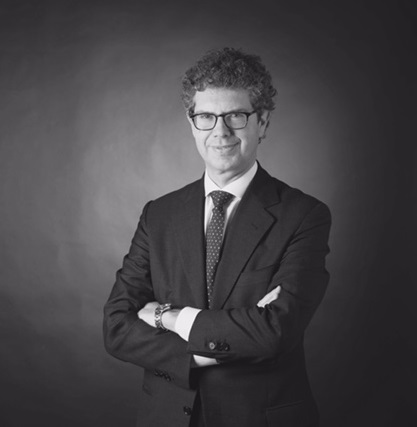
 045 802 8691 (VR) 0444 393931 (VI)
045 802 8691 (VR) 0444 393931 (VI)




